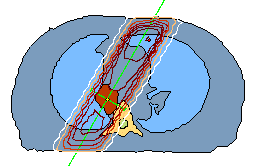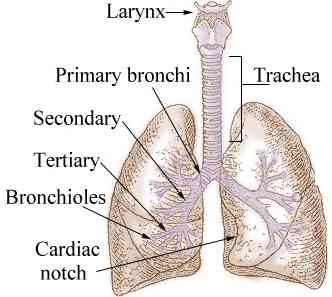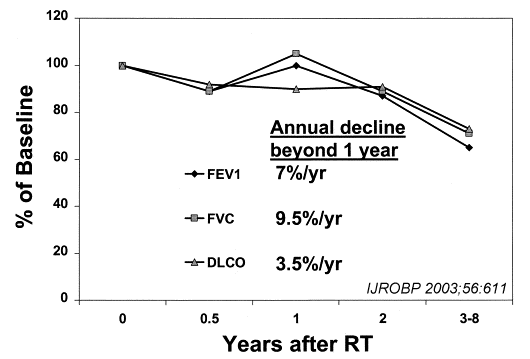Typical side effects
are listed in the consent form below from the recent RTOG lung trial
Short term there is little risk from radiating the heart
(though the dose should be limited as noted here) but long term there is an
increased risk of coronary artery disease (see here.)
Consent form for RTOG 0324
Risks from Radiation Therapy
Radiation therapy to the chest
Very Likely
Difficulty, pain, or burning sensation when swallowing, which is temporary; the use of
chemotherapy withradiation may increase this risk. You should avoid acidic or spicy foods
and alcoholic beverages.
Fatigue (tiredness) for no apparent reason, which is temporary
The skin in the treatment area may become reddened and/or dry, and chest hair may not grow
back.
Decrease in blood counts while undergoing treatment, which could lead to an increased risk
of infection, weakness, and/or in bleeding and bruising easily Cough
Some difficulty breathing, due to lung damage, as described below
Less Likely, But Serious
Irritation of the lining around the heart, which can cause chest pain, shortness of
breath, and irregular or rapid heart beat; rarely, this can require surgery to correct.
Irritation and/or damage to the muscle of the heart; rarely, this can cause a heart
attack, heart failure, and/or death.
Irritation and/or damage to the spinal cord (the major nerve within the spine),
which can lead to weakness, tingling or numbness of the lower body and legs; very rarely,
this can lead to inability to move or control the lower half of the body.
Narrowing of the esophagus (tube to the stomach)
Chest radiotherapy can cause changes in normal lungs. These changes can be as unimportant
as small amounts of "scarring" seen on x-rays that does not cause symptoms.
Sometimes chest radiotherapy can cause lung damage that leads to symptoms such as
shortness of breath, cough, or fever. Rarely, these symptoms can be severe or life
threatening. The combined use of chemotherapy and radiotherapy, as in this study, may
increase the risk of developing symptoms due to lung damage.
|



